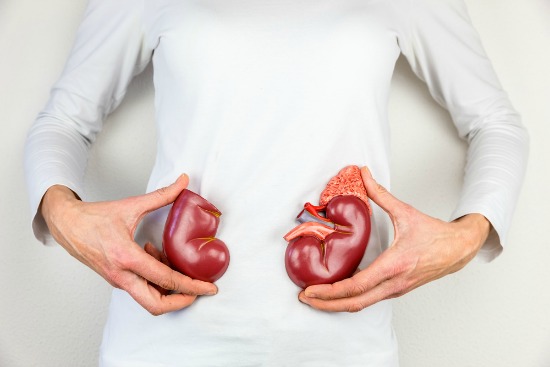This week, we celebrated World Kidney Day. On March 9th, this global health initiative aims to raise awareness about kidney health. It also aims to reduce the frequency and impact of chronic kidney disease (CKD).
Chronic kidney disease (CKD) is a progressive loss of kidney function. This disease is often called a ‘silent killer’ as people can lose up to 90 per cent of their kidney function before getting any symptoms. Kidney disease takes the life of 1 Australian every 25 minutes.
The kidneys play a vital role in the body as they filter unwanted chemicals or waste in your blood. Making it important to know how best to prevent diseases (like CKD) which reduce the kidney’s efficiency.
A recent report released by Kidney Health Australia highlighted that Australia’s national obesity crisis is leading to higher rates of kidney disease.
It found that people who are overweight are one and half times more likely to develop chronic kidney disease. It also found that obese people are twice as likely to develop CKD. Currently, 63% of the Australian population are overweight. 35% of these people are overweight and the other 28% are obese.
These facts that are concerning. As they make many Australian’s high-risk candidates for developing chronic kidney disease.
Kidney Health Australia CEO Mikaela Strafrace says, ““In obese people the kidneys have to work harder, filtering more blood than normal. This increase in function can damage the kidneys – effectively shutting them down – and cause kidney disease.”
The number of Australians dependent on dialysis or kidney transplant to stay alive is expected to rise by 60% over the next decade. This will make support services like Queensland’s Kidney Support Network highly sort after.
The Kidney Support Network is a non-for-profit organisation which provides quality support to Queensland residents who are impacted by chronic kidney disease. Their volunteers help kidney transplant recipients and people undergoing kidney dialysis. Volunteers also help people who have suffered end stage kidney failure get back on their feet.
Peter Watling, the CEO of Kidney Support Network, says, “It’s not only obesity that makes Australia’s a high-risk group when it comes to developing kidney diseases. Other factors – like diabetes, high-blood pressure, hypertension, family history of kidney disease, smoking, Aboriginal and Torres Strait Islander descent, Pacific Islander Ancestry, or being over 50 years of age – can contribute to developing chronic kidney disease.”
The symptoms of chronic kidney disease include:
- Blood in your urine or very dark urine
- Urine that is foamy or bubbly
- Swelling of your face, feet or hands
- Shortness of breath from fluid in the lungs
- Unexplained fatigue, tiredness or weakness.
It’s estimated that 510,000 Australians have signs of chronic kidney disease that may be due to obesity.
If you have any of these symptoms it’s critical that you get check as soon as possible by your GP. Early detection is the best way to avoid kidney failure. As preventative treatments are now being offered to aid the kidneys before their function is completely destroyed.
“Drinking water regularly and staying consistently active is the best way to avoid developing kidney related diseases. Alcohol, caffeine, and sugar are some of the worst offenders on kidney health,” says Peter.
If you do develop kidney disease there are treatments available.
The first is dialysis, a process that helps to replace the work of the kidneys by filtering the blood and removing excess fluids. Dialysis is currently used by more than 7,000 Australians.
The second is a kidney transplant, a surgical procedure which replaces the failed kidney with a healthy kidney from another person. If you don’t have a loved one who’s willing to donate a kidney you are required to go on a waiting list. On average a successful transplant can give a person another 15 years of life.
“If you’re at increased risk of developing kidney disease due to your weight, ask your GP for a simple Kidney Health Check. It is important to start taking control of your kidney health before you become another statistic.”





